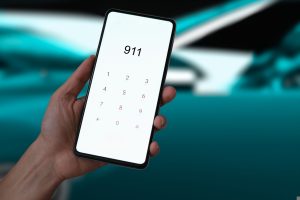When emotions run high in domestic disputes, situations can escalate quickly from verbal arguments to physical confrontations. If you’ve been arrested for domestic violence in Florida after defending yourself from an attack by a partner or family member, you may be wondering whether self-defense can be used as a legal defense in your case. The answer is nuanced, but yes—self-defense can potentially be used in Florida domestic violence cases under specific circumstances.
Understanding Florida’s Self-Defense Laws
Florida’s self-defense statutes are among the most comprehensive in the nation, including the well-known “Stand Your Ground” law. The primary law governing self-defense in Florida is F.S. § 776.012, which establishes when a person is justified in using force to protect themselves or others.
Under this statute, a person is justified in using or threatening to use non-deadly force if they reasonably believe such force is necessary to defend themselves against another person’s imminent use of unlawful force. For deadly force, the standard is higher—it must be reasonably believed to be necessary to prevent imminent death or great bodily harm.
The Unique Challenges of Self-Defense in Domestic Violence Cases
While self-defense is a recognized legal principle in Florida, asserting this defense in domestic violence cases presents unique challenges that defendants and their attorneys must carefully navigate.
The “He Said, She Said” Problem
Domestic violence incidents typically occur in private settings without independent witnesses. This creates what legal professionals often refer to as a “he said, she said” situation. Law enforcement officers arriving at the scene must make quick determinations based on limited information, often relying on visible injuries, the demeanor of the parties involved, and statements made at the scene.
Unfortunately, these initial assessments don’t always capture the full picture of what transpired. The person who initiated the violence may not show visible injuries, while the person who defended themselves may have caused more apparent harm in their efforts to protect themselves.
Societal and Legal Bias
Florida courts and law enforcement are rightfully sympathetic to victims of domestic violence, particularly given the serious nature of domestic abuse and its prevalence in our society. However, this sympathy can sometimes create an environment where self-defense claims are viewed with skepticism, especially when they come from defendants who caused visible injury to their alleged victims.
The Burden of Proof
The key to this defense, however, is being able to provide evidence of the imminent threat to prove that your actions were justified. This is particularly challenging in domestic violence cases where evidence may be limited and emotions are high.
Essential Elements of a Self-Defense Claim
To successfully assert self-defense in a Florida domestic violence case, several critical elements must be established:
1. Imminent Threat of Harm
The threat must be immediate and real, not speculative or based on future harm. You cannot claim self-defense against a threat that might materialize later or in response to verbal threats alone, unless those threats are accompanied by actions that create a reasonable fear of imminent physical harm.
2. Reasonable Belief of Necessity
Your belief that force was necessary to protect yourself must be reasonable under the circumstances. This is evaluated from the perspective of a reasonable person in your situation, considering factors such as the size and strength of the parties involved, any weapons present, and the history of violence in the relationship.
3. Proportional Response
The force used in self-defense must be proportional to the threat faced. You cannot use deadly force in response to a minor threat of non-deadly force. The response must be reasonable given the nature and severity of the threat.
4. No Provocation
Under Section 776.041, Florida Statutes, self-defense is not available where the defendant initially provoked the violence. If you started the physical confrontation or provoked the violence through your actions, claiming self-defense becomes much more difficult, though not impossible under certain circumstances.
Florida Statute § 776.041: When Self-Defense Is Limited
It’s crucial to understand that Florida Statute § 776.041 limits the availability of self-defense claims when the defendant provoked the violence. However, even if you initially provoked the confrontation, you may still be able to claim self-defense if: Continue reading
 Fort Lauderdale Criminal Attorney Blog
Fort Lauderdale Criminal Attorney Blog













